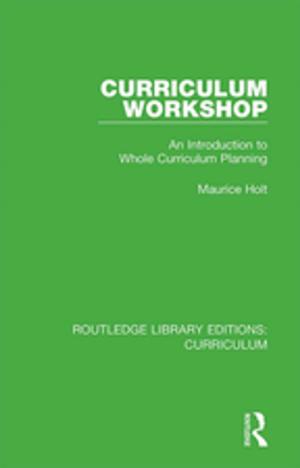Critical Approaches to Life Writing Methods in Qualitative Research
Nonfiction, Social & Cultural Studies, Social Science| Author: | Thalia M. Mulvihill, Raji Swaminathan | ISBN: | 9781317244462 |
| Publisher: | Taylor and Francis | Publication: | April 7, 2017 |
| Imprint: | Routledge | Language: | English |
| Author: | Thalia M. Mulvihill, Raji Swaminathan |
| ISBN: | 9781317244462 |
| Publisher: | Taylor and Francis |
| Publication: | April 7, 2017 |
| Imprint: | Routledge |
| Language: | English |
Life writing projects have become part of the expanding field of qualitative research methods in recent years and advances in critical approaches are reshaping methodological pathways. Critical Approaches to Life Writing Methods in Qualitative Research gives researchers and students looking for a brief compendium to guide their methodological thinking a concise and working overview of how to approach and carry out different forms of life writing.
This practical book re-invigorates the conversation about the possibilities and innovative directions qualitative researchers can take when engaged in various forms of life writing, such as biography, autobiography, autoethnography, life history, and oral history. It equips the reader with the tools to carry out life writing projects from start to finish, including choosing a topic or subject, examining lives as living data, understanding the role of documents and artifacts, learning to tell the story, and finally writing/performing/displaying through the voice of the life writer. The authors also address the ways a researcher can begin a project, work through the issues they might face along the journey, and arrive at a shareable product.
With its focus on the plurality of life writing methodologies, Critical Approaches to Life Writing Methods in Qualitative Research occupies a distinct place in qualitative research scholarship and offers practical exercises to guide the researcher. Examples include exploring authorial voice, practical applications of reflexivity exercises, the relationship between the narrator and participants, navigating the use of public and private archives, understanding the processes of collaborative inquiry and collaborative writing, and writing for various audiences.
Life writing projects have become part of the expanding field of qualitative research methods in recent years and advances in critical approaches are reshaping methodological pathways. Critical Approaches to Life Writing Methods in Qualitative Research gives researchers and students looking for a brief compendium to guide their methodological thinking a concise and working overview of how to approach and carry out different forms of life writing.
This practical book re-invigorates the conversation about the possibilities and innovative directions qualitative researchers can take when engaged in various forms of life writing, such as biography, autobiography, autoethnography, life history, and oral history. It equips the reader with the tools to carry out life writing projects from start to finish, including choosing a topic or subject, examining lives as living data, understanding the role of documents and artifacts, learning to tell the story, and finally writing/performing/displaying through the voice of the life writer. The authors also address the ways a researcher can begin a project, work through the issues they might face along the journey, and arrive at a shareable product.
With its focus on the plurality of life writing methodologies, Critical Approaches to Life Writing Methods in Qualitative Research occupies a distinct place in qualitative research scholarship and offers practical exercises to guide the researcher. Examples include exploring authorial voice, practical applications of reflexivity exercises, the relationship between the narrator and participants, navigating the use of public and private archives, understanding the processes of collaborative inquiry and collaborative writing, and writing for various audiences.















